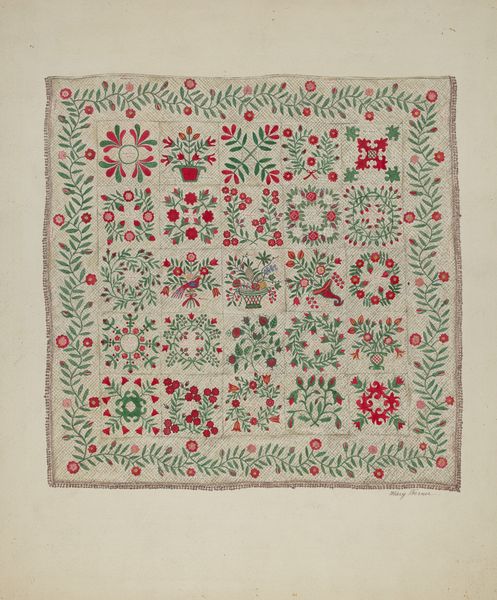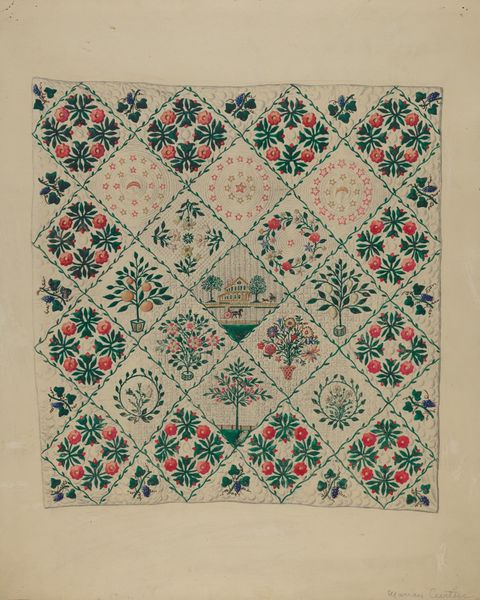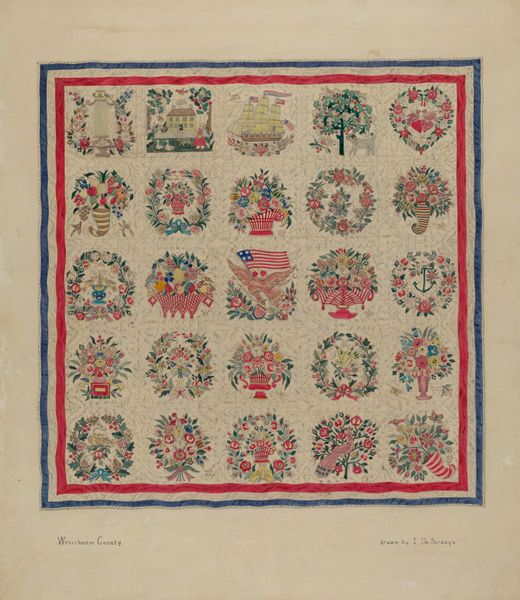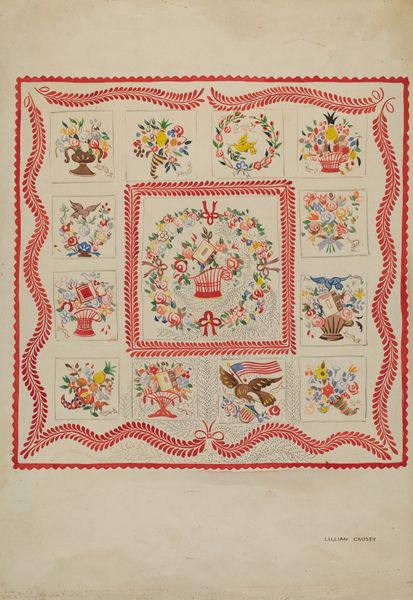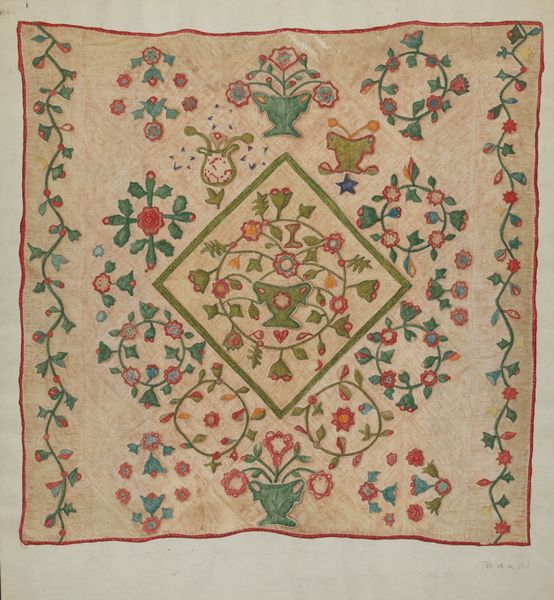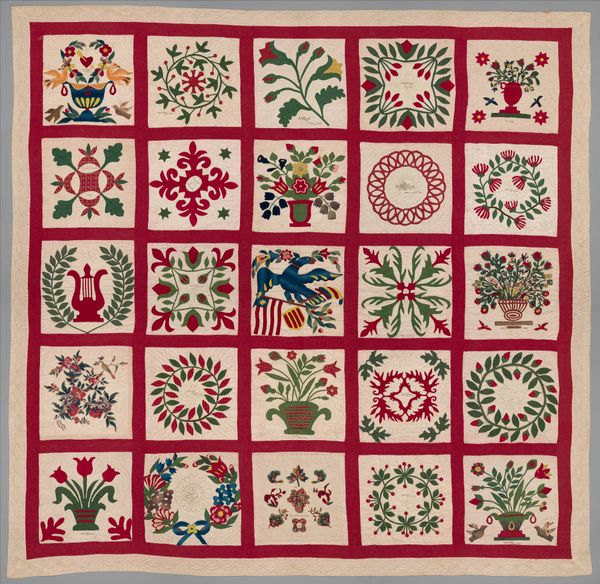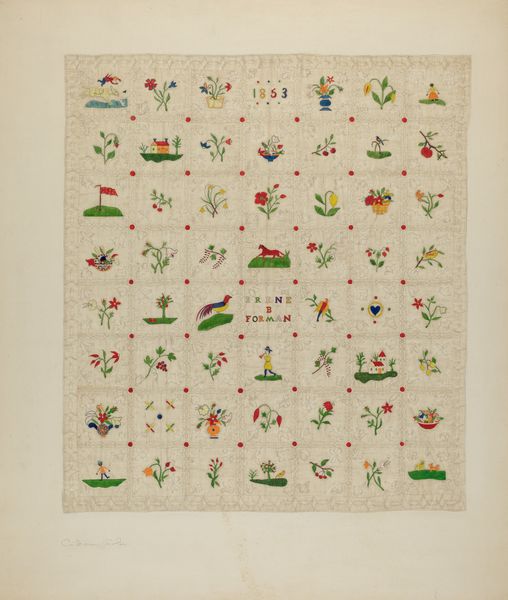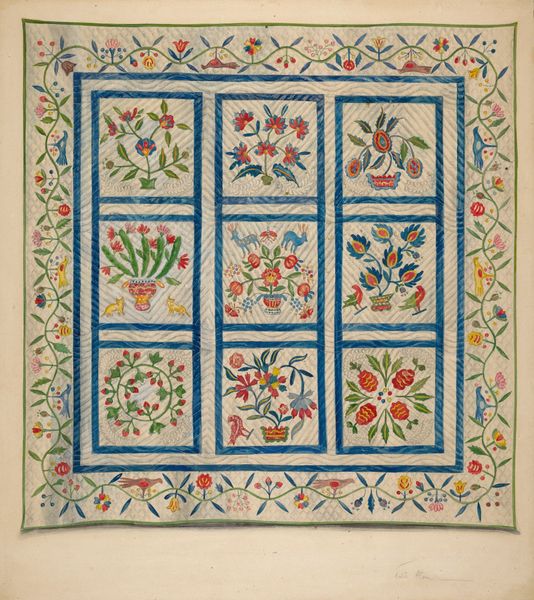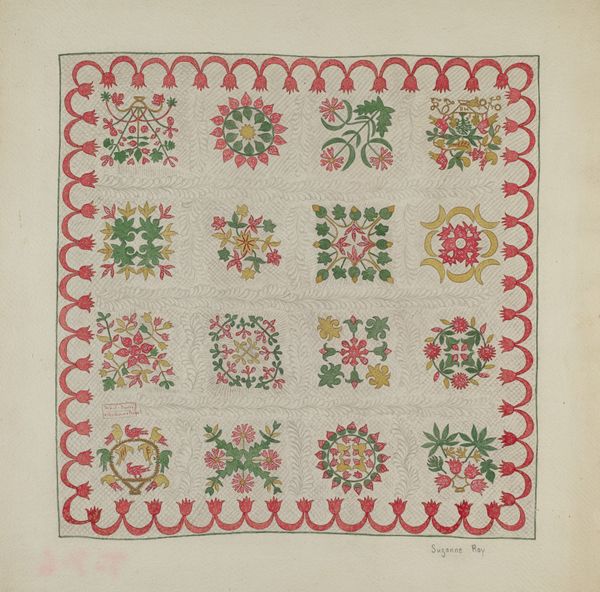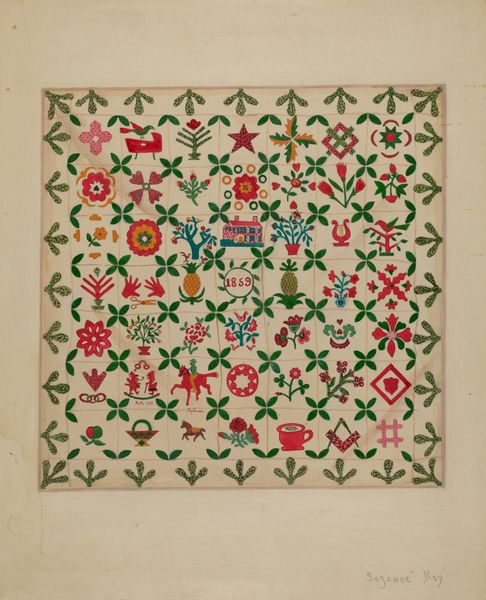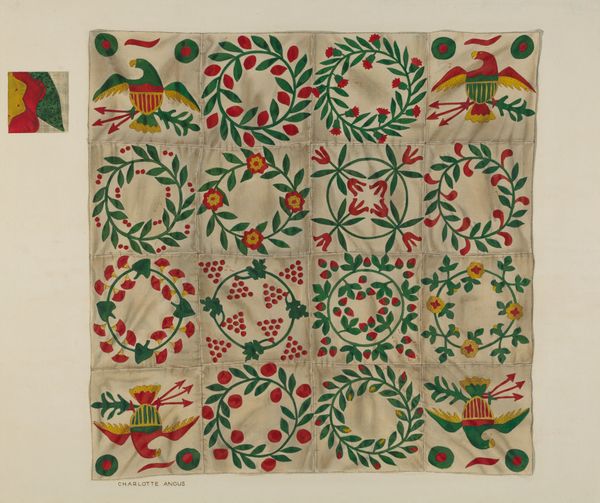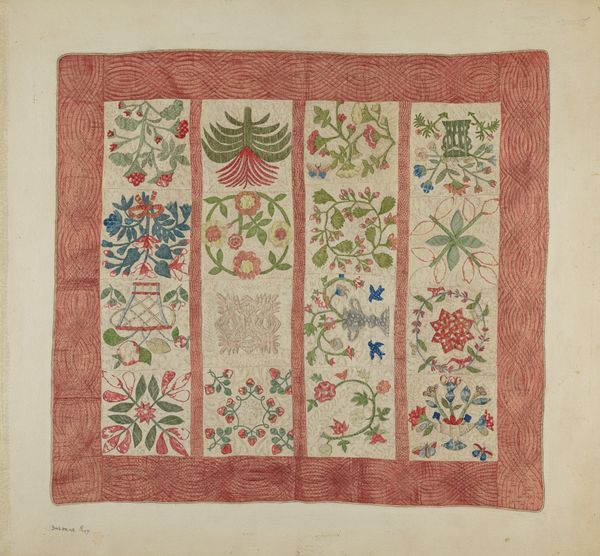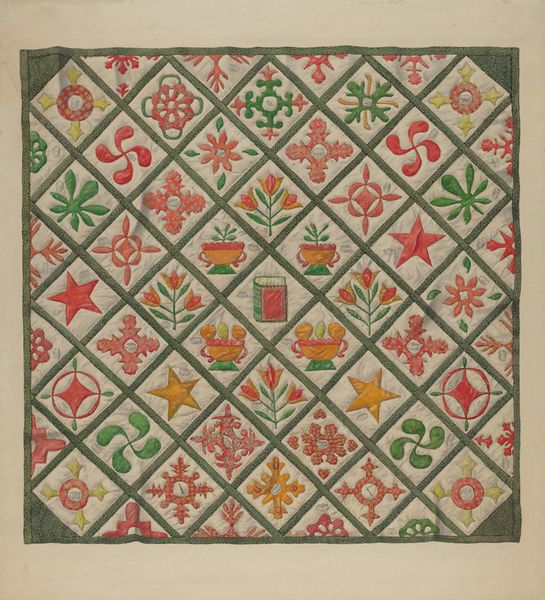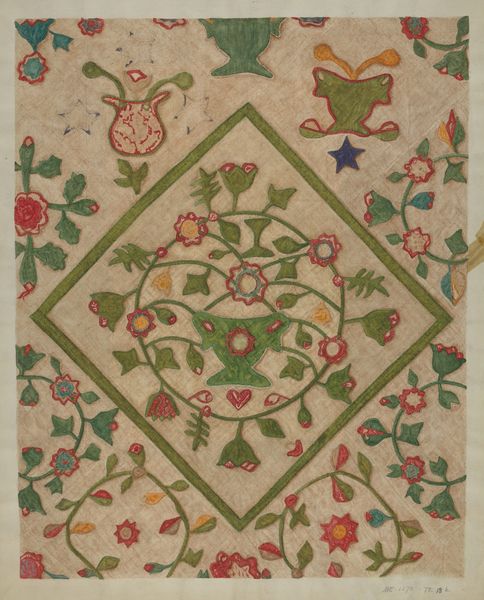
textile
#
pattern heavy
#
natural stone pattern
#
folk-art
#
textile
#
pattern background
#
ethnic pattern
#
folk-art
#
repetition of pattern
#
regular pattern
#
pattern repetition
#
textile design
#
imprinted textile
#
layered pattern
Dimensions: overall: 40.6 x 38.3 cm (16 x 15 1/16 in.) Original IAD Object: 118 1/2" wide; 109" long
Copyright: National Gallery of Art: CC0 1.0
Marian Curtis Foster made this applique quilt, with its pattern of flowers, fruit, and birds, sometime in the mid-20th century. Quilts have long served as communal projects for women, often in rural areas. The patterns and designs can be read as visual codes, expressing shared values and beliefs. These quilts were rarely displayed in museums until quite recently. This reflects the art world's traditional exclusion of craft and domestic arts, associating them with women and the private sphere rather than with male genius and the public realm of art. Looking closer, the quilt’s floral motifs and careful stitching speak to a specific history of female labor and creativity. It is a powerful act of reclaiming women’s work. To fully understand this quilt, we need to consider its cultural and institutional context, researching patterns, techniques, and the lives of the women who made them. Only then can we grasp the full meaning and significance of this often-overlooked art form.
Comments
No comments
Be the first to comment and join the conversation on the ultimate creative platform.
